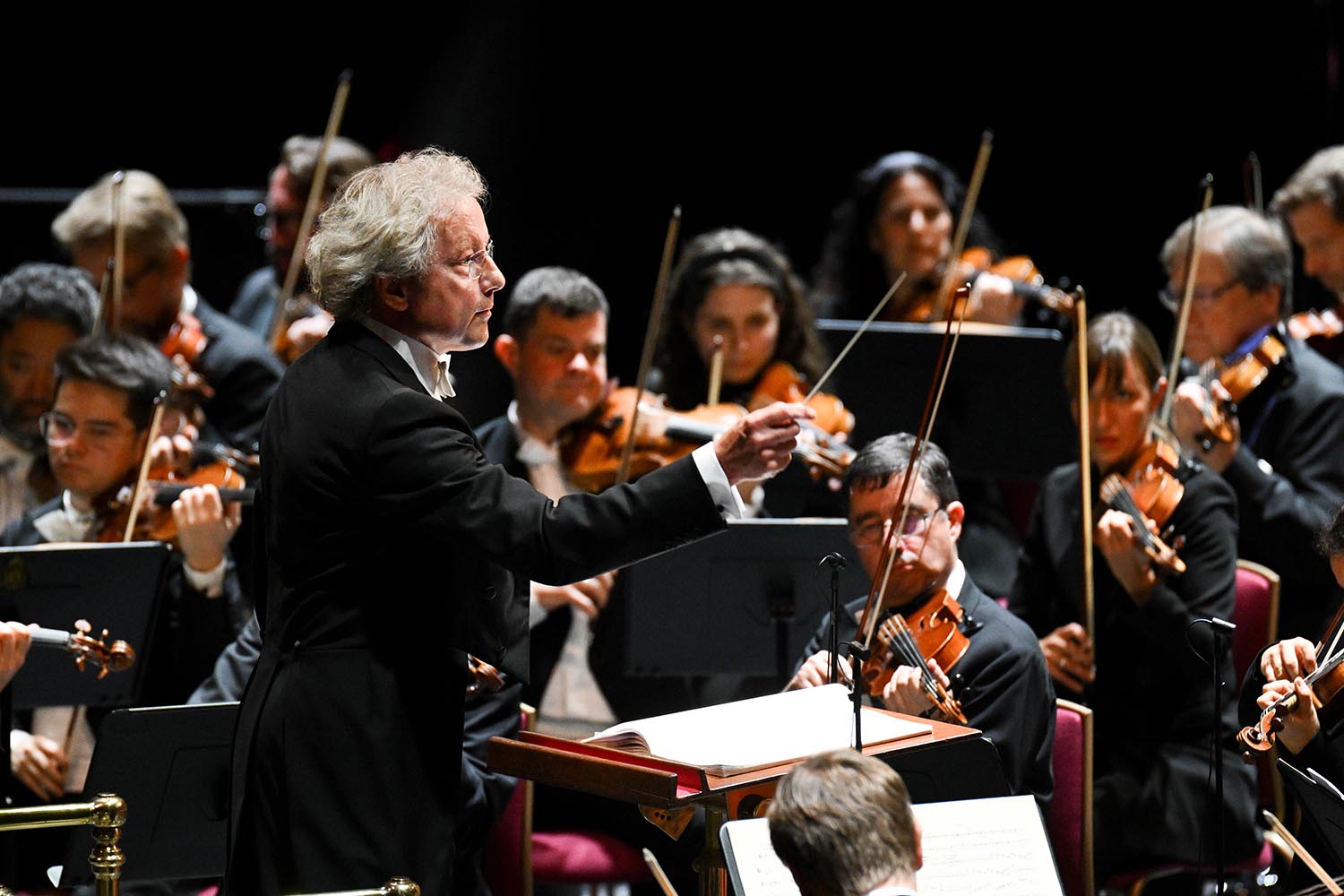A list of composers who prompt extreme reactions would have to start with Wagner, Delius, Puccini. Then you might add Tchaikovsky, Rachmaninov, Sibelius, Philip Glass, even Handel. All depends on the vagaries of background and prejudice, as well as the sound in your ears, that make up taste. No one, however, beats Anton Bruckner (1824-96) when it comes to extreme love-hate response. His music – grand, elemental, iconoclastic – exists in a class of its own.
The Vienna Philharmonic, one of the world’s most august ensembles, brought his unfinished Symphony No 9 to Monday’s Prom, dedicated to God, conducted by Franz Welser-Möst. This orchestra, once but no longer regular UK visitors, all but own this singular Austrian composer, a conservative Catholic schoolteacher and organist, who wrote symphonies of blazing, radical invention. Many of his works were premiered in Vienna, where he worked and lived, pursuing an eccentric set of passions, from cadavers and skulls to numerology to youngish girls on whom he had impossible crushes.
How astonished would Henry Wood, the Proms’ founder-conductor, have been to see the capacity Albert Hall crowd who had walked, biked and bus-battled their way across London on a tube strike day to be there. Wood loved Bruckner. He saw the disdain of his audiences and abandoned attempts, in the early 1900s, to convert them. The great conductor Bruno Walter had a more dramatic experience. He said he only truly understood Bruckner after a life-threatening dose of double pneumonia that gave him head space to ponder, and see the point. Walter went on to make an influential recording, among other things, of the Ninth.
The qualities that set these players apart are discipline, virtuosity and, yes, a sense of collective self but in service to the music
The qualities that set these players apart are discipline, virtuosity and, yes, a sense of collective self but in service to the music
Incomplete at the composer’s death, the symphony consists of three movements: the first and third, massive orchestral boulders, the second, a brisk, contrasting scherzo. Beethoven and Wagner, and older traditions of Renaissance counterpoint, haunt Bruckner’s music but by suggestion, not imitation. He left sketches for a fourth movement but the usual habit is to play it as it stands, usually in the Nowak edition. (Editions are a complex thread in the Brucknerian web.) This was a magisterial performance: strings silken and precise, woodwind solos lyrical, brass, including four Wagner tubas and the distinctive Vienna horns – differently constructed from the French horn, with different bore sizes and valves – brilliant, rich-toned and rousing. Moments of less precise ensemble only added to the vitality and sense of risk. Perfection is not the point.
Welser-Möst raises intriguing questions about what we expect or need from a conductor. Whereas many of his colleagues bend and gyrate with balletic agility, implicitly guiding us through, he is cool, ordered, almost detached. He raises his arms higher not to enact the inherent, sweated struggle in Bruckner’s mighty work but to cue the brass sitting up at the back. Why do more, he seems to say, handing responsibility back to the listener, which is fair enough, though it may not prompt the kind of thumping, fandom applause from the Prommers. The Vienna Philharmonic has a close affinity with this fellow Austrian, who frequently works with them (the orchestra has no chief conductor).
Completing a Viennese programme, their performance of Berg’s Suite from Lulu (1935) was a model of sensuousness, alienation and tight control. The composer veils his obsession for symmetry and pattern with voluptuous, gauzy colours, intensified by the addition of alto saxophone.
The following night they chose more approachable fare: Mozart’s Symphony No 38 in D major, K504 “Prague” and Symphony No 6 in B minor, Op 74 ”Pathétique” by his fervent admirer, Tchaikovsky: contrasting composers who each put rigour, form and structure to the fore. The hall’s acoustic made the Mozart feel too mellow – we are now accustomed to a gutsier, period instrument style – yet the playing was supple and crisp, with graceful solos from flute and oboe and only light string vibrato.
In the Tchaikovsky, these players demonstrated the qualities that set them apart: discipline, virtuosity and, yes, a sense of collective self but in service to the music, whether the murky bassoon solo and febrile violas at the start, the dazzling string drill or a clarinet solo, wistful and free. Anyone who listens to the “Pathétique” brings their own response to its sombre finale, completed nine days before Tchaikovsky’s death. The central character in EM Forster’s novel Maurice enjoyed “the piercing and the tearing and the soothing – the music did not mean more to him than that”. It sounds enough. The 20-second silence at the end was as resonant as the eventual applause.
Listen to any Prom on BBC Sounds; the Vienna Philharmonic’s Tchaikovsky Prom is also on BBC iPlayer
Photograph by Chris Christodoulou
Newsletters
Choose the newsletters you want to receive
View more
For information about how The Observer protects your data, read our Privacy Policy

